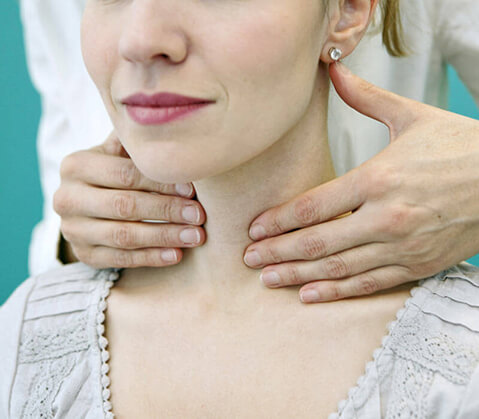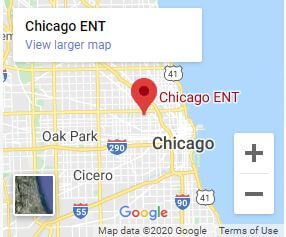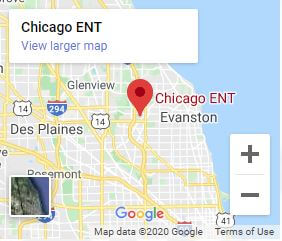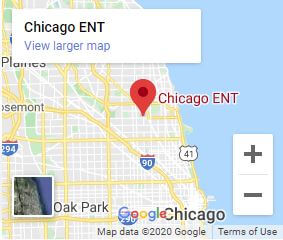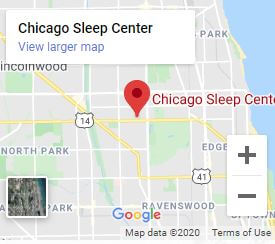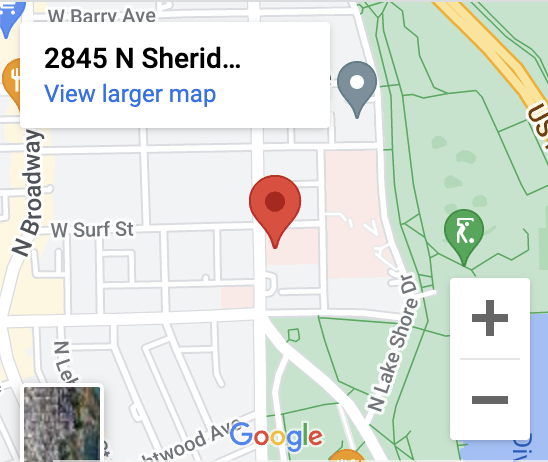Cold and flu season is here again, and with that comes the continued concern that your symptoms could be COVID-19. Although the onset of body aches, sore throat, fatigue, fever, headaches, runny nose, and cough caused by the flu are anticipated to a certain extent, now you also have to worry about if you could have COVID-19 and if you’ve exposed anyone to it.
How do you go about telling the differences between the two? Keep reading to learn more about the flu and COVID-19 and how to know what sets them apart!
The Causes of the Flu and COVID-19 are Different
The first difference between the flu and COVID-19 is what causes them. Viruses cause both the flu and COVID-19.
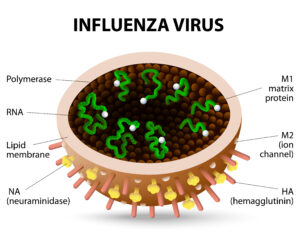
However, the flu is due to three main influenza viruses: types A, B, and C. On the other hand, COVID-19 results from the virus SARS-coV-2 (Severe Acute Respiratory Syndrome coronavirus 2).
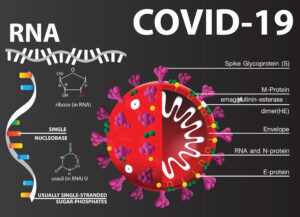
Below are other key differences between COVID-19 and the flu:
Someone With the Flu Won’t Lose Their Sense of Taste or Smell
Losing your sense of smell or taste is common with COVID-19. However, this isn’t seen in people who have the flu.
The Incubation Period For COVID-19 is Longer
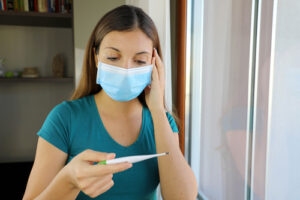
The incubation period from exposure to the initial symptoms for COVID-19 is anywhere between 1-14 days. The flu’s incubation period is anywhere between 1-4 days.
COVID-19 is More Contagious
Although the flu is easy to catch from someone who has it, COVID-19 spreads more easily and faster than the flu.
COVID-19 Symptoms Last Longer
If you have COVID-19, its symptoms last longer, meaning you could be sick for anywhere between 7-21 days. With the flu, symptoms only last about 7-14 days.
COVID-19 Can Result in More Severe Illness
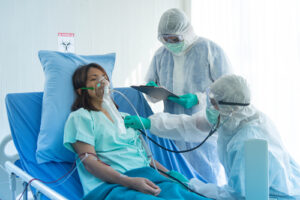
When compared to the flu, COVID-19 can result in more severe illnesses. These illnesses can be especially concerning for people who are already immunocompromised.
If You Have the Flu, You’ll Feel Sickest at the Beginning
People with the flu usually feel sickest during the first week and then improve after that. But for people with COVID-19, it’s more common to feel sickest during the second or third week you have it.
Those With COVID-19 May Have More Severe Lung Infections
People with COVID-19 may have a more severe lung infection compared to those that have the flu.
Having COVID-19 May Lead to Dying
If you have COVID-19, it increases your risk of dying, both during and after infection. Having the flu is less severe and will not result in death for most people.
Ultimately, testing is the only way to confirm which virus you have.
How COVID-19 and the Flu Viruses are Spread
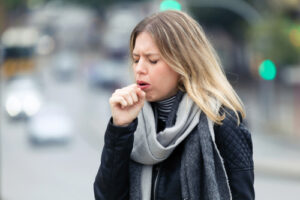
Usually, both illnesses are transmitted in almost the same way. Droplets from an infected person can spread the virus to others through sneezing, talking, or coughing.
The tiny particles linger in the air, making it possible for someone else to inhale them, where they can then become sick as well.
Besides transmitting through droplets, it is possible to get infected by touching a surface with either virus present and touching your face. COVID-19 and the flu can be passed on from person to person, particularly when in close contact, and it’s possible to be infected by both illnesses simultaneously.
Part of what makes COVID-19 and the flu so concerning is that they can be transmitted by infected people even if they don’t show any symptoms. That means that it’s possible to have either the flu or COVID-19 and be asymptomatic.
How to Treat the Flu and COVID-19
You can’t treat COVID-19 and the flu with antibiotics because they only work on bacterial infections. Both COVID-19 and the flu are viruses, meaning they can’t be treated with antibiotics.
For those with the flu or COVID-19, it’s about addressing the symptoms like bringing down the fever. However, severe cases need hospitalization, and very ill patients with COVID-19 may require ventilators to help them breathe.
Antiviral medications have been shown to minimize the duration of the flu as well as COVID-19. When you’re sick, ensure you’re properly hydrated to keep your muscles and organs functioning as they should. In addition, get plenty of rest to allow your body to reserve its energy for fighting off illness and getting better.

Ways to Avoid Sickness
As the COVID-19 pandemic continues, the virus is mutating, leading to variants of the virus. One example is the Delta variant that’s now responsible for most of the infections in the U.S., meaning it’s more contagious.
It’s estimated that someone infected with the original strain of COVID-19 can spread it to about two people. But a person who has the Delta variant can pass it to 4-6 people or even more.
Fortunately, the COVID-19 vaccines are effective and safe. Getting vaccinated curbs the spread of Delta just like it’s worked for other variants in addition to following these preventative measures:
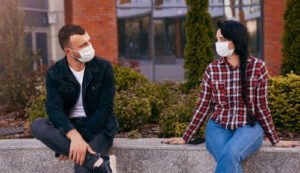
- Wash your hands frequently
- Remain at home if you’re feeling unwell
- Wear a mask
- Maintain social distancing
- Increase ventilation indoors
Getting a flu shot can minimize your risk of becoming seriously ill or even dying from the flu. Receiving a flu shot is your best defense against influenza. Stay healthy during flu season by:
- Avoiding touching your mouth, nose, and eyes
- Covering your nose and mouth when sneezing or coughing
- Staying at home if you’re sick
- Avoiding close contact with unwell people
It’s also essential to take care of yourself. Staying healthy will help you fight off infections like COVID-19 and the flu.
Make sure you get enough sleep, eat nutritious meals, and work out regularly to boost your immune system. Remember, you can still get COVID-19 even if you’ve been fully vaccinated.
The same is true even if you get your flu shot. But your chances of getting the flu or COVID-19 decreases significantly when you get vaccinated.
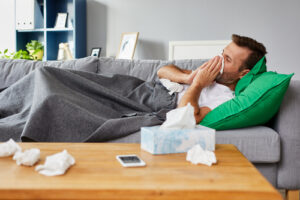
Protect Yourself and Others from COVID-19 and the Flu
If you suspect you have either flu or COVID, no matter what’s causing your symptoms, stay at home to avoid infecting others. If you require ENT care while you have COVID-19, the experts at Chicago ENT are here to help.
Schedule an appointment at Chicago ENT in Chicago, IL, and above all, if you’re sick, stay home to avoid spreading COVID-19 and the flu to others.





